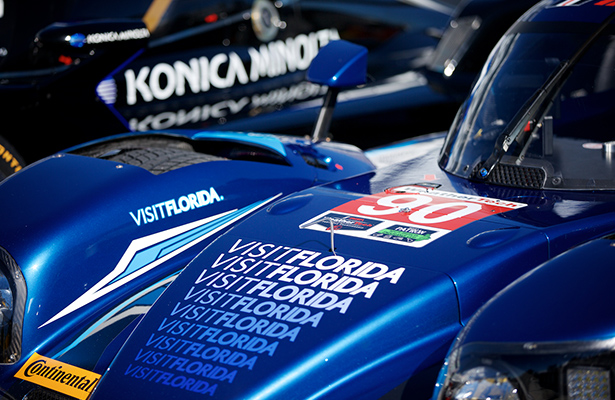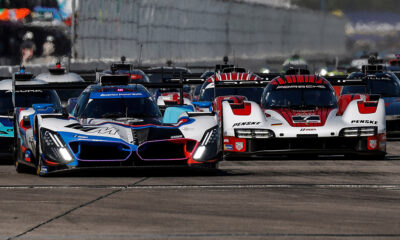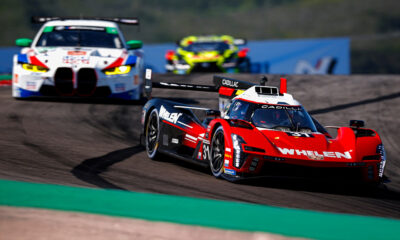
Photo: John Dagys
Visit Florida Racing team owner Troy Flis is targeting a switch to DPi machinery next year, admitting that the Cadillac DPi-V.R could be its one-and-only option should it go the manufacturer route in the short-term.
The former Corvette DP squad, which currently campaigns the only Riley Mk. 30 Gibson in the IMSA WeatherTech SportsCar Championship, has struggled with its LMP2 contender in the first half of the season, despite a podium finish, based on reliability, in the Rolex 24 at Daytona.
Flis said one of the driving forces to the DPi platform is the disparity in performance to the LMP2 cars, which he said has put the global-spec prototypes at a disadvantage under most circumstances.
“It will be tough to race for an overall championship with a LMP2 car in my opinion,” Flis told Sportscar365 prior to Sunday’s Sahlen’s Six Hours of The Glen. “We saw that the first race of the season.
“We were hoping that maybe IMSA would be able to do some BoP and get that in control but it doesn’t look like it’s gotten there yet.
“When we ran DPs we were 1 second off the pace everywhere [to the P2s] everywhere we went but we raced better, like these cars.
“Now these cars are 1 second faster than us and they race better. How are we going to compete?”
Another issue developing are the differences between the four global-spec LMP2 cars, which has seen an early advantage go to the Oreca 07 Gibson, with no Balance of Performance written in the ACO regulations.
Per IMSA’s rules, the top-performing LMP2, meanwhile, serves as the performance baseline for the Prototype class, which has seen the DPis adjusted to that level, but the other under-achieving LMP2 cars, such as the Riley, unchanged.
Additionally, IMSA has permitted DPi manufacturers to roll out with updates, while still under draft homologation, which has resulted in performance and reliability developments to the Riley-chassied Mazda RT24-Ps, but not eligible for the LMP2-spec Riley.
“With the rules we can’t do much to our cars,” Flis said. “It’s not like the DP where we can go back and work on it a little bit and change some things around. These cars you have to run to the rulebook.
“The DPi… you can build a car and change the car to get that competitiveness back you need.”
The disparity has led to a collation of teams to push for the formation of a seperate DPi and LMP2 classes, and while under discussion, IMSA President Scott Atherton said it would unlikely be for next year.
Despite having had talks with prospective DPi manufacturers, Flis said his best short-term solution could be with Cadillac, which is currently the only manufacturer to make its engine and bodywork package available to customers.
He said it “wouldn’t be a huge hurdle” other than the costs involved in making the switch from its current Riley chassis to the Dallara P217, which serves as the base of the Cadillac DPi.
“I still have a great relationship with [GM] and it’s something we could back that route,” Flis said.
“We’d have to switch everything but the cars seem to be pretty well developed with the support that’s out there.
“With Dallara and [GM] you know you have a pretty competitive package. They’ve proven that time and time again.”
Flis said a decision on its 2018 plans would have to be made pretty soon.
“Now, I think come [Mosport], I think we’d be at the point where you’d have to make a decision for next year on what’s going to happen,” he said.
“I think that’s going to be the turning point if you’re taking your toys and going home or if you’re going to get involved and get a partner to get on board with you.”


























